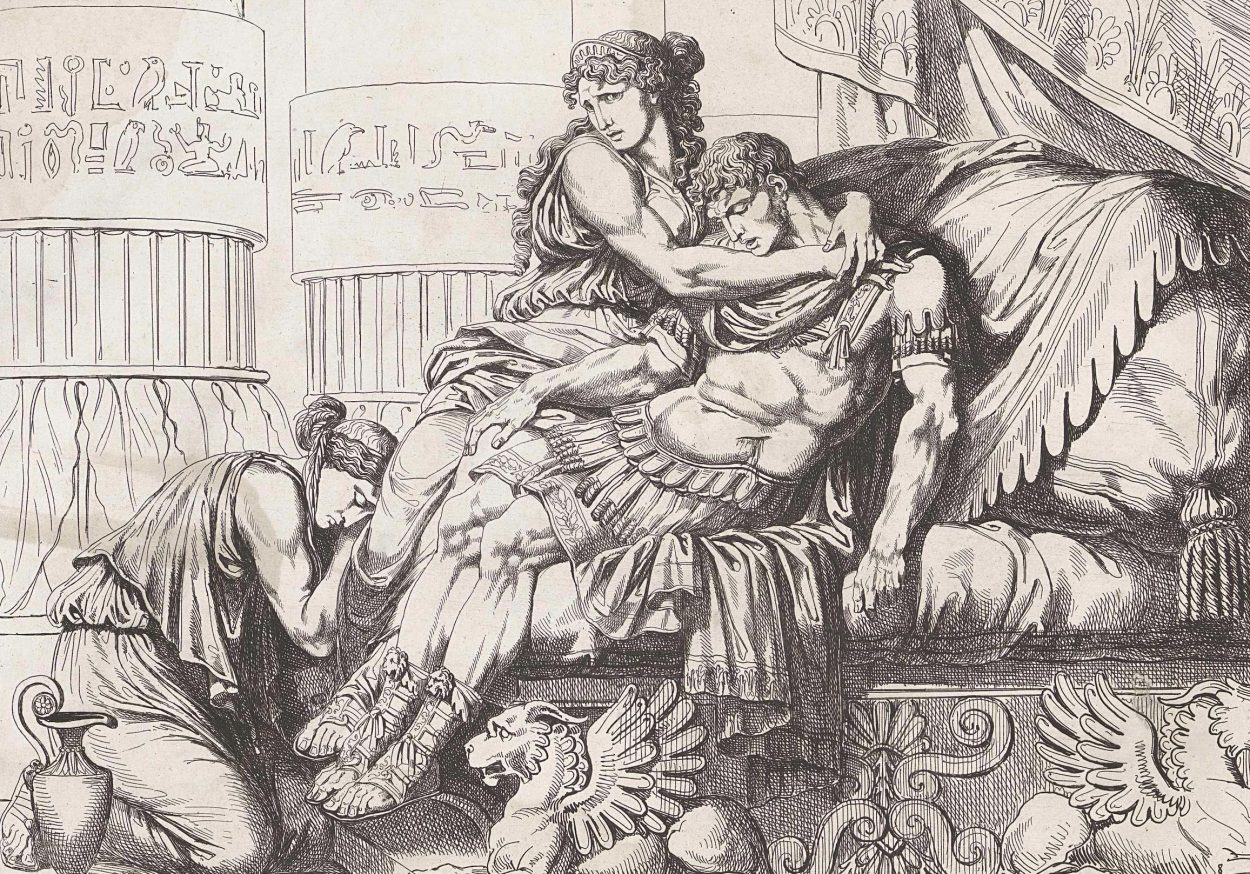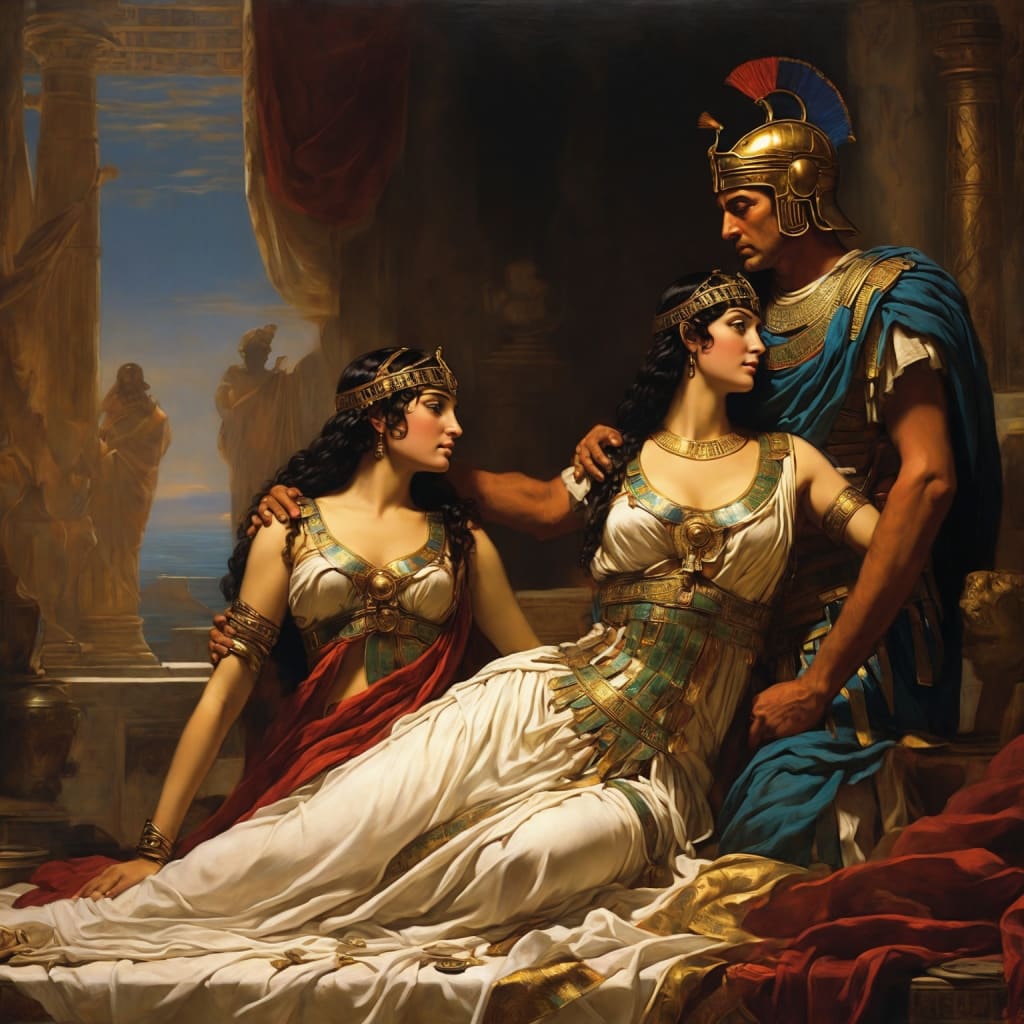
When considering the vast and intricate tapestry of **Roman history**, one name that frequently emerges is that of **Mark Antony**. But who exactly was this intriguing individual, and what is it about his life and legacy that continues to captivate historians and enthusiasts alike? To truly understand Mark Antony, we must explore his remarkable journey, which includes his ascent to power within the Roman political landscape, his passionate and often tumultuous relationship with the enigmatic queen **Cleopatra**, and the series of events that ultimately led to his dramatic downfall. Antony was not just a military leader and politician; he was a man whose life was marked by ambition, romance, and tragedy. His alliances and conflicts shaped the course of Roman history, and his story is a compelling blend of love, betrayal, and the relentless pursuit of power. Join us as we delve deeper into the life of Mark Antony, a figure whose legacy continues to resonate through the ages.
Early Life and Background

Who Was Mark Antony?
Mark Antony, a significant figure in Roman history, was born in **83 BCE** into a distinguished family that held considerable influence in the Roman Republic. His father, known by the moniker **Creticus**, earned this title due to his notable military achievements in **Crete**, which contributed to the family’s reputation. Additionally, Antony’s grandfather was a celebrated orator and served as consul, creating a legacy of excellence that cast a long shadow over Antony’s early life and set high expectations for his future endeavors.
A Youth of Promise
Although Antony’s youth was marked by a certain wildness and a penchant for indulgence, he nevertheless exhibited remarkable potential as a military leader. His early career included serving as a **cavalry commander** in both **Judaea** and **Egypt**, where he not only sharpened his tactical skills but also gained invaluable experience in leadership and warfare. This formative period laid the groundwork for his later prominence in Roman politics and military affairs, showcasing his ability to navigate the complexities of both the battlefield and the political arena.
Rise to Power

Joining Julius Caesar
Mark Antony’s significant turning point in his career occurred when he became a member of the staff of the renowned Roman general and statesman, **Julius Caesar**. This partnership was not merely a professional alliance; it was also deeply personal, as Antony was related to Caesar through his mother. This familial connection would later prove to be a vital asset for Antony as he maneuvered through the perilous and often deadly landscape of Roman political intrigue and power struggles. His association with Caesar opened doors for him and provided him with invaluable insights into the workings of Roman governance.
The Civil War
When the **Civil War** broke out between **Pompey**, a leading figure in the Roman Senate, and Caesar, Antony demonstrated unwavering loyalty by standing firmly alongside Caesar. His commitment was evident as he took on a prominent role in the ensuing battles, where he showcased his exceptional military skills and strategic acumen. Antony’s contributions during this tumultuous period not only solidified his reputation as a capable leader but also deepened his bond with Caesar, further entrenching him in the political landscape of Rome.
From Tribune to Triumvir
Following the shocking assassination of Julius Caesar in **44 BCE**, Antony quickly moved to consolidate his power. He took control of the state treasury and utilized Caesar’s personal documents to strengthen his political position. In the aftermath of this crisis, he emerged as one of the **triumvirs**, a powerful trio that included **Octavian** and **Lepidus**. This new role allowed Antony to wield significant influence in Roman affairs, as he navigated the complexities of leadership during a time of great upheaval and uncertainty.
Antony and Cleopatra: A Fateful Alliance

The Meeting in Tarsus
The pivotal moment that marked the beginning of Antony’s relationship with **Cleopatra**, the illustrious queen of Egypt, occurred when he summoned her to the city of **Tarsus**. This meeting was initially prompted by accusations of treachery against Cleopatra, but what unfolded was far more significant than a mere political inquiry. Their encounter ignited a passionate romance that would not only alter their lives but also reshape the course of history itself. The allure of Cleopatra and her captivating presence left a lasting impression on Antony, leading to a union that would intertwine their fates in unexpected ways.
Political and Romantic Union
For a remarkable span of **11 years**, Antony and Cleopatra forged a partnership that was both romantic and politically strategic. Cleopatra, facing the challenges of maintaining her kingdom, found in Antony a powerful ally who could help restore her realm to its former glory. Conversely, Antony recognized the importance of Egypt as a vital source of resources and support for his ambitions. Their relationship exemplified the intricate dance between love and politics, as they navigated the complexities of their respective roles in a tumultuous world.
Children of the Union
Throughout their time together, Antony and Cleopatra welcomed three children into the world, which further solidified their bond and commitment to one another. These children symbolized the merging of their legacies and the hope for a future that combined their strengths. However, their relationship was not without its trials and tribulations, particularly as tensions with Octavian, Antony’s rival, began to escalate, threatening both their personal and political aspirations.
The Downfall of Mark Antony

The Battle of Actium
In **31 BCE**, the conflict between Antony and Octavian culminated in the **Battle of Actium**. This naval battle was a turning point, with Octavian’s forces decisively defeating Antony’s fleet.
Retreat to Alexandria
After the defeat, Antony retreated to **Alexandria** with Cleopatra. The couple faced mounting pressure as Octavian’s forces closed in on them.
The Tragic End
In the summer of **30 BCE**, as Octavian’s army approached, both Antony and Cleopatra chose to end their lives rather than face capture. Their tragic deaths marked the end of an era for Rome and Egypt.
Mark Antony’s Legacy

A Complex Figure
Mark Antony is often remembered as a tragic hero. His life was a mix of **military brilliance**, **political savvy**, and **romantic passion**. But what can we learn from his story?
Lessons from History
Antony’s life teaches us about the dangers of ambition and the complexities of love in the political arena. His downfall serves as a reminder that even the most powerful can fall from grace.
Impact on Roman History
Antony’s alliance with Cleopatra and his conflict with Octavian were pivotal in the transition from the **Roman Republic** to the **Roman Empire**. His legacy continues to influence literature, art, and popular culture.
Table: Key Events in Mark Antony’s Life

| Year | Event |
|---|---|
| 83 BCE | Birth of Mark Antony |
| 49 BCE | Supports Julius Caesar in the Civil War |
| 44 BCE | Becomes a triumvir after Caesar’s assassination |
| 41 BCE | Begins relationship with Cleopatra |
| 31 BCE | Defeated at the Battle of Actium |
| 30 BCE | Commits suicide in Alexandria |

Mark Antony’s life is a captivating tale of ambition, love, and tragedy. His story reminds us that history is not just about dates and events; it’s about the people who shaped those events. So, the next time you hear about Mark Antony, remember the man behind the name—a complex figure whose legacy continues to resonate through the ages.

